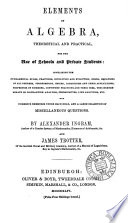 | Alexander Ingram - 1844 - 262 pages
...and —x* raised to the nth power is either + *""* or — *mn, according as n is even or odd. is got by multiplying the coefficient of the preceding term by the exponent of the leading quantity in that term, and dividing the product by the number of that term. 5. That when... | |
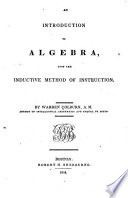 | Warren Colburn - Algebra - 1844 - 280 pages
...7axt+xt Examining the formation of the above coefficients, we observe, that each coefficient was found by multiplying the coefficient of the preceding' term by the exponent of the leading quantity a in that term, and dividing the product by the number which marks the place of... | |
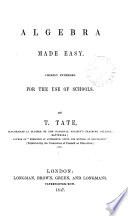 | Thomas Tate (mathematical master.) - 1847 - 138 pages
...is 4, the same number as the given power. The coefficient of the third term is 6, and it is obtained by multiplying the coefficient of the preceding term by the exponent of the a, and dividing this product by 4x3 2, the number of this term ; thus — ~ — =6. The coefficient... | |
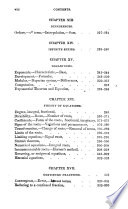 | Stephen Chase - Algebra - 1849 - 348 pages
...term (ie of both x and a) is n. (5.) The coefficient of any term whatever after the first is found by multiplying the coefficient of the preceding term by the exponent of the leading quantity in that term, and dividing by the number of terms preceding the required term.... | |
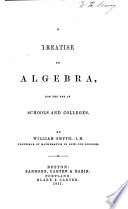 | William Smyth - Algebra - 1855 - 370 pages
...therefore, the following rule, by which to form the coefficient of any term whatever, viz. Multiply the coefficient of the preceding term by the exponent of x in that term, and divide the product by the number which marks the place of that term from the left. From what has been... | |
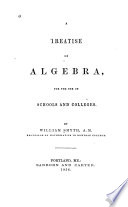 | William Smyth - Algebra - 1858 - 344 pages
...therefore, the following rule, by which to form the coefficient of any term whatever, viz. Multiply the coefficient of the preceding term by the exponent of x in that term, and divide the product by the number which marks the place of that term from the left. From what has been... | |
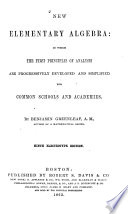 | Benjamin Greenleaf - 1863 - 338 pages
...term is the same as the exponent of the power ; and, in general, the coefficient of any term is found by multiplying the coefficient of the preceding term by the exponent of the leading letter of the same term, and dividing the product by the number which marks its place.... | |
 | Horatio Nelson Robinson - Algebra - 1866 - 328 pages
...coefficient of the leading quantity in the root. UNIVERSALLY; — The coefficient of any term may be obtained by multiplying the coefficient of the preceding term by the exponent of the leading quantity in that term, or by (he number of the term from the last, and, by the coefficient... | |
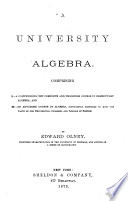 | Edward Olney - Algebra - 1873 - 354 pages
...unity ; of the second, the exponent of the required power ; and that of any other term may be found by multiplying the coefficient of the preceding term by the exponent of the first letter in that term, and dividing the product by the exponent of the second letter + 1. 100,... | |
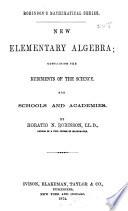 | Horatio Nelson Robinson - Algebra - 1874 - 340 pages
...coefficient of the leading quantity in the root. UNIVERSALLY; — The coefficient of any term may be obtained by multiplying the coefficient of the preceding term by the exponent of the leading quantity in that term, or by the number of the term from the last, and by the coefficient... | |
| |